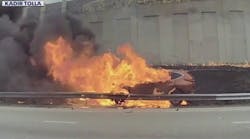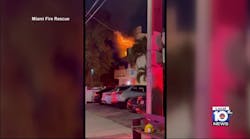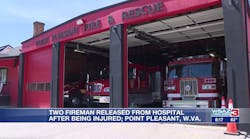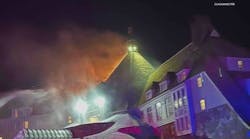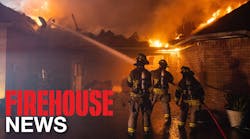Three D.C. ambulance crews and a supervisory officer are facing possible discipline for failing to follow department protocols the night a police officer was struck by a car and no city ambulances were available to transport him to a hospital, according to an investigative report released Thursday.
Each of the three two-person crews were within 4 miles of the location of the injured officer but were improperly out of service or not properly monitoring radio channels while out of service.
"Each unit was either at a fire station in Southeast or en route to a fire station and could have rendered service if the proper protocol was followed," the report states.
Paul A. Quander Jr., the deputy mayor for public safety and justice who compiled the report, was most critical of the failure by an emergency liaison officer stationed at the city's 911 call center to monitor the ambulances available for transport in the midst of the March 5 incident.
"I believe that the [emergency liaison officer] is a critical component. It is the position that can see where the needs are and where the gaps are," Mr. Quander said. "There was a failure there in that position but there were failures in others areas."
The officer's failure to monitor the ambulances "improperly allowed the units to go out of service when transport units were low or not available," the report states.
A D.C. police officer suffered multiple fractures to his left leg when he was struck by a car at about 6:30 p.m. while on his department scooter and waited for 30 minutes to be transported to a hospital by a Prince George's County ambulance called in when no ambulances from the D.C. fire department were available to respond.
According to the report, a basic life support ambulance manned by two firefighters and located about 4 miles from the crash site went out of service without authorization at 6:26 p.m. Ambulance 15 went out of service for close to an hour when one of the firefighters closed the unit's laptop and "did not realize we were logged off" of the department's computer dispatch system, the report states.
While the report goes on to imply that additional steps are required to log the unit out of the system, it does not outright say that firefighters took those steps or accuse them of lying. Closing the laptop lid should not log a computer out of the system, rather another button has to be clicked to disengage, the report notes.
Firefighters' union President Edward Smith said the problem "shows a flaw in the system," adding that the two firefighters called in to dispatch and discovered they were logged out when they heard a call come through on the radio that they thought their unit should have handled.
If the firefighters were properly monitoring their radios, Mr. Quander questioned why it took them nearly an hour to realize their mistake.
"If you noticed at 7:19 p.m., why didn't you hear a call earlier when the police officer needed assistance?" he said.
Two advanced life support ambulances manned by civilian paramedics also were faulted in the incident report.
Medic 19 went out of service for about 45 minutes while it returned to a Southeast D.C. firehouse. The unit was allowed to go out of service at 6:34 p.m. by the liaison officer on the condition the crew monitor the department's radio channel for emergency calls, which the report says the crew failed to do.
A second ambulance staffed by a paramedic crew went out of service at 6:27 p.m. when the Medic 27 crew noticed that the batteries on the ambulance's defibrillator were dead. The crew went out of service for nearly 30 minutes while in transit back to a Northeast D.C. firehouse. The report faults the crew for failure to inspect the defibrillator earlier in the day during a staffing changeover.
Kenneth Lyons, president of American Federation of Government Employees Local 3721, which represents the department's civilian paramedics, said Medic 19 indicated that they were monitoring radios, but that they were never notified of a call to which they should respond.
Preparing to head into a hearing before the D.C. Council next week on the issue, Mr. Quander said he expects the department to have better responses overall.
"I have confidence in the fire chief, I have confidence in the men and women in the fire and emergency services department to get this done," he said.
Copyright 2013 The Washington Times LLCAll Rights Reserved

